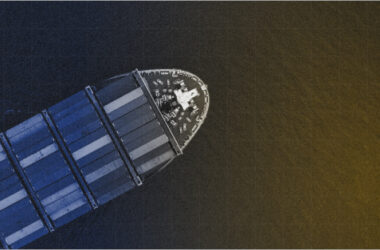Imagine you are a business owner shipping valuable goods across the high seas, or via rail or road. While these transportation modes promise adventure and opportunity, they also bring risks—storms, accidents, or even piracy. Without proper protection, a single unforeseen event could result in devastating financial losses. Whether you are transporting cargo or operating vessels, the unpredictable nature of marine environments puts your assets at risk.
This is where Marine Insurance steps in. In this blog, we will break down what Marine Insurance is, how it works, and why it’s essential for safeguarding your maritime ventures. By the end, you will know exactly how to protect your interests and sail with peace of mind.
Marine Insurance: An Overview
The concept of Marine Insurance dates back to ancient maritime trade, with the first documented policies originating in ancient Greece and Rome. These early policies were refined in Mediterranean trade cities such as Venice and Genoa. Over time, the practice spread globally and became a cornerstone of international trade. In India, Marine Insurance gained prominence during the British colonial era as trade routes expanded. The establishment of formal insurance companies and the codification of maritime laws further streamlined the practice. Today, Marine Insurance is a vital part of India’s trade infrastructure, underpinned by a robust regulatory framework and a growing awareness among businesses.
Marine Insurance is a contract between the insurer and the insured, where the insurer agrees to indemnify the insured against losses related to maritime activities. This insurance policy covers the transportation of goods, ships, and associated liabilities. In other words, Marine Insurance covers the loss or damage of ships, cargo, terminals, and any mode of transport by which goods are transferred between points of origin and their destination. For instance, if an Indian exporter ships goods to another country and the cargo is damaged during transit, Marine Insurance ensures the exporter doesn’t bear the financial burden alone.
In India, where international trade forms a substantial part of the economy, Marine Insurance is indispensable for exporters, importers, and logistics companies. Whether it’s a natural calamity, theft, or accidental damage, a Marine Insurance Policy provides the safety net businesses need to navigate the risks associated with transporting goods. Additionally, Marine Insurance fosters confidence in trade, ensuring smooth and uninterrupted commerce.
Scope of Marine Insurance
The transit clause in Marine Insurance defines when the coverage starts or ends during the transportation of goods. There are three distinct phases in this clause:
- Start of Coverage:
Coverage begins when the goods are first moved from their origin ( a warehouse, supplier’s premises or a factory), for immediate loading onto the transport vehicle or vessel.
- During Transit:
Goods are insured while in transit via the agreed modes ( sea, air, road or rail). Intermittent storage is covered, provided it is part of the normal course of the journey.
- End of Coverage
Coverage stops upon:
- Delivery of the goods to the final destination
- Storage in a warehouse for purposes other than immediate transit
- Expiration of a specified time period ( usually 30 to 60 days) after arrival at the destination.
Types of Marine Insurance Policies
Understanding the different types of Marine Insurance is essential for selecting the right coverage. Here are the main types available in India:
1. Marine Open Insurance
- Covers goods during transit by sea, air, rail, or road.
- Offers continuous coverage for all shipments under one policy
- Protects the cargo against risks like theft, damage and loss throughout the transit journey
- Simplifies the process and saves time by ensuring seamless protection for all shipments under a single policy
2. Single Transit Insurance
- Covers a specific shipment or consignment during a single journey
- Offers financial protection against risks such as damage, loss or theft of goods during the journey from the starting point to the final destination
- Ideal for shipping companies and vessel owners who ship goods occasionally and do not need continuous coverage.
3. Sales Turnover Policy
- Here, businesses insure their estimated annual sales turnover, which becomes the sum insured.
- Ensures coverage for all transits needed to achieve this estimated turnover
- Premiums are calculated based on the total sales turnover, offering cost-effective coverage for all transits.
Coverage Inclusions Under Marine Insurance
Marine Insurance in India offers comprehensive coverage, including:
- Natural Calamities: Marine Insurance provides protection against damages caused by storms, floods, and other weather-related events.
- Theft or Piracy: This marine insurance policy covers the risk of stolen goods during transit, including acts of piracy in high-risk zones.
- Accidents: This cargo insurance coverage includes damages due to collisions, fire, or capsizing.
- War and Strikes: Many marine cargo insurance policies provide optional add-ons for risks like war, terrorism, and strikes.
- General Average Contribution: A unique maritime principle where all stakeholders share losses if cargo is jettisoned to save the vessel.
These Marine Insurance coverages ensure that stakeholders are protected against a wide array of risks, fostering seamless trade.
Exclusions in Marine Insurance Policies
While Marine Insurance offers extensive coverage, certain risks are excluded. Common exclusions in a typical Marine Insurance Policy include:
- Losses due to wilful misconduct by the insured.
- Damage caused by inadequate or improper packing of goods.
- Delays in transit leading to financial losses are generally excluded in Marine Insurance policies unless specifically covered by additional clauses, such as those related to transport delays or delivery timelines.
- Ordinary wear and tear or natural deterioration of goods.
- Losses arising from radioactive contamination or nuclear risks.
Understanding these coverage exclusions helps businesses set realistic expectations and make informed decisions while customising their policies.
Importance of Marine Insurance for Businesses in India
India’s position as a global trade hub highlights the importance of Marine Insurance. Here’s why this insurance policy is essential:
- Risk Mitigation: Minimises financial risks associated with the transportation of goods.
- Legal Compliance: Marine Insurance is commonly required in international trade agreements to ensure risk mitigation, but the necessity for it depends on the terms and conditions of each specific contract.
- Business Continuity: A Marine Insurance Policy ensures that businesses recover quickly from losses, maintaining operations.
- Enhanced Credibility: Demonstrates a company’s commitment to protecting its stakeholders and partners.
For Indian exporters and importers, Marine Insurance is not just a safeguard but a necessity for sustainable growth and competitive advantage.
Marine Insurance Regulatory Framework in India
Marine Insurance in India is governed by:
- The Marine Insurance Act, 1963: Provides the legal foundation for marine insurance contracts.
- Insurance Regulatory and Development Authority of India (IRDAI): Ensures compliance and policy standardisation.
These regulations safeguard both insurers and policyholders, fostering trust in the Marine Insurance ecosystem.
How to Choose a Marine Insurance Policy in India
Selecting the right Marine Insurance Policy can be daunting. Here are some tips:
- Assess Cargo Insurance Coverage Needs: Identify the specific risks associated with your trade routes and cargo.
- Compare Policies: Research offerings from various insurers to find the best terms.
- Check Reputation: Choose insurers with a solid track record and expertise in marine cargo insurance, ensuring they understand the unique risks associated with maritime trade.
- Understand Premiums: Ensure the Marine Insurance Policy premium is competitive and aligns with the coverage provided.
- Customisation: Look for policies that allow add-ons or tailored coverage for unique business needs.
Investing time in choosing the right insurance policy can save businesses from significant losses in the long run.
Final Thoughts
Marine Insurance is a cornerstone of India’s thriving trade and commerce. By providing a safety net against a wide range of risks, it ensures that businesses can operate confidently in the global market. Selecting the right policy, understanding the coverage, and staying compliant with regulations are critical for maximising the benefits of Marine Insurance. Whether you are an exporter, importer, or logistics provider, investing in a robust Marine Insurance Policy is essential for safeguarding your business and ensuring resilience in the face of unpredictable trade challenges.








